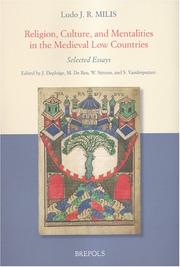| Listing 1 - 2 of 2 |
Sort by
|
Book
ISBN: 2503514812 9782503514819 Year: 2003 Publisher: Turnhout : Brepols,
Abstract | Keywords | Export | Availability | Bookmark
 Loading...
Loading...Choose an application
- Reference Manager
- EndNote
- RefWorks (Direct export to RefWorks)
Classical Latin literature --- Classical Greek literature --- Patrology --- Christian literature, Early --- Publishing. --- #GGSB: Patrologie (alg.) --- #GGSB: Latijnse patrologie (studie) --- Academic collection --- 281 --- 276 =71 <08> --- #gsdb14 --- Oosters christendom --- Latijnse patrologie--Verzamelwerken. Reeksen --- C1 --- Kerken en religie --- patrologie --- Corpus Christianorum (serie). --- Filosofia cristã. --- Filosofia patrística. --- Littérature chrétienne primitive --- Littérature chrétienne primitive. --- Patristiek. --- Édition. --- Corpus Christianorum --- Corpus Christianorum. --- Histoire. --- History. --- religious texts --- Early Christian literature --- Patristic literature --- Publishing --- Publication and distribution --- Latijnse patrologie (studie) --- Patrologie (alg.) --- Christian literature, Early - Translations into English. --- Christian literature, Early - Publishing. --- Corpus christianorum --- Bible. N.T. Apocryphes --- Pères de l'Église --- Pères grecs --- Théologie --- Collections de monographies --- Anthologies --- Histoire


ISBN: 2503518907 9782503518909 9782503539898 Year: 2005 Publisher: Turnhout : Brepols,
Abstract | Keywords | Export | Availability | Bookmark
 Loading...
Loading...Choose an application
- Reference Manager
- EndNote
- RefWorks (Direct export to RefWorks)
Ludo Milis graduated from Ghent University in 1961 as the last student of François-Louis Ganshof, who in the years after Henri Pirenne’s retirement was the most prominent representative of the famous “Ghent School” of medieval history. Milis’s own academic career at Ghent span four decades in which he followed in the footsteps of his masters, yet also explored new directions. Like his predecessors, Milis always attached great importance to the critical examination of primary sources, but for him, such work must serve broader historical inquiry guided by a precise set of questions and methodological rigor. His interests lay primarily in the study of religious and cultural history, which previously had been neglected at Ghent; he was also a pioneer in the history of mentalities in the Low Countries. Milis’s research and thought found expression in several books, among which his Angelic Monks and Earthly men. Monasticism and its Meaning to Medieval Society (Boydell, 1992), translated into many languages, was probably the most influential.This collection contains eleven essays published between 1969 and 1990. Most of them appeared in Dutch or French and have now been translated into English; two essays previously published in English were newly edited. All provide unique insight in the major themes of Milis’s work: the religious history of the Low Countries during the early and high Middle Ages, as well as the problem of religious conversion and persuasion; the rise of regular canons in the eleventh and twelfth centuries (also the subject of his doctoral dissertation on the order of Arrouaise, published in 1969); the uses of power and ideology; and the history of French Flanders. All bear witness to Milis’s inspiring ability to ask original, probing questions and to write historical syntheses accessible to a wide audience.The collection is presented to Ludo Milis by his students on the occasion of his retirement and his sixty-fifth birthday.
Church history --- verzameling --- Milis, Ludovicus, --- Benelux countries --- Church history. --- 949.301 --- C3 --- cultuurgeschiedenis (x) --- middeleeuwen (x) --- Nederland [land in werelddeel Europa] --- religie --- Vlaams Gewest [gewest in land België - BE] --- 940.1 --- 940.1 Geschiedenis van Europa: Middeleeuwen:--(ca.375-1492) --- Geschiedenis van Europa: Middeleeuwen:--(ca.375-1492) --- Christianity --- History Belgium Early history to 1477 --- Kunst en cultuur --- Middle Ages, 600-1500 --- Low countries --- History of civilization --- Christian church history --- History of the Low Countries --- anno 500-1499 --- Monasticism and religious orders --- Monachisme et ordres religieux --- History. --- Histoire --- Belgium --- Belgique --- Social life and customs --- Civilization --- Histoire religieuse --- Moeurs et coutumes --- Civilisation --- Milis, Ludovicus --- Bibliography --- Social life and customs. --- Middle Ages, 500-1500 --- Vie intellectuelle --- Vie religieuse --- Moyen âge. --- Histoire. --- Pays-Bas --- Church history - Middle Ages, 600-1500. --- Church history - Middle Ages, 600-1500 --- Moyen âge.
| Listing 1 - 2 of 2 |
Sort by
|

 Search
Search Feedback
Feedback About
About Help
Help News
News